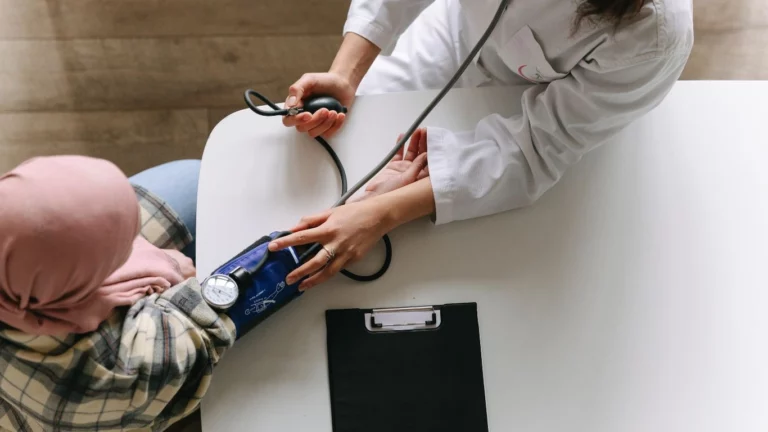Is Acid Reflux Related to GERD? Powerful Insights for Treatment and Relief
If you’ve ever felt the uncomfortable burn in your chest after eating, you might be wondering whether it’s simply acid reflux or something more serious. As someone who’s worked as a Medical Assistant in a Gastroenterology Clinic, I’ve seen firsthand how confusing it can be to differentiate between acid reflux and GERD. These two conditions are often talked about interchangeably, but they’re not exactly the same thing. Let’s dive into the details and see what sets them apart, and why understanding this difference is so important for your health.
What Is Acid Reflux?
Acid reflux is a condition that occurs when stomach acid or bile irritates the food pipe lining. It’s something many people experience at one point or another. Whether it’s from eating spicy food, drinking too much coffee, or even lying down too soon after eating, acid reflux is common. The classic symptom is the feeling of a burning sensation in your chest, often referred to as heartburn.

But here’s the thing: acid reflux doesn’t always mean you have a serious medical condition. For some people, it might just be a temporary discomfort that resolves on its own. However, if acid reflux happens frequently, that’s where it could become something more serious, like GERD. This is why it’s crucial to pay attention to how often you’re experiencing these symptoms and to consider seeking medical advice if they persist.
What is GERD?
GERD, or Gastroesophageal Reflux Disease, is essentially a more severe and chronic form of acid reflux. While acid reflux is something that most people will experience now and then, GERD is a long-term condition where acid reflux occurs more than twice a week. This constant backflow of acid can cause damage to the esophagus and lead to complications if left untreated.

Understanding the Link Between Acid Reflux and GERD
So, you might be asking: is acid reflux related to GERD? Absolutely. Acid reflux is a key symptom of GERD, but not everyone with acid reflux has GERD. The key difference lies in the frequency and severity of the symptoms. If acid reflux becomes frequent and persistent, it could signal that you’re dealing with GERD, which requires more intensive treatment to prevent long-term damage to your esophagus.
From my experience working in the clinic, I’ve seen patients come in who initially think they have a bad case of heartburn, but when we dig deeper, it turns out they’ve had frequent acid reflux episodes for months, or even years. That’s when GERD is suspected. GERD can lead to more serious problems, like ulcers, narrowing of the esophagus, or even esophageal cancer in severe cases. This is why it’s crucial to understand the symptoms and get checked out by a healthcare professional.
Symptoms of Acid Reflux vs GERD
While the primary symptom of both acid reflux and GERD is heartburn, there are a few other signs that can help distinguish between the two. Let’s take a look at some common symptoms:
- Heartburn: A burning sensation in the chest, often after eating or when lying down. This can occur with both acid reflux and GERD.
- Regurgitation: This is the sensation of acid backing up into your throat or mouth, causing a sour taste. More common in GERD.
- Coughing or Wheezing: Some people with GERD experience coughing, wheezing, or hoarseness due to the acid irritating the throat.
- Dysphagia (Difficulty Swallowing): In severe GERD cases, the acid can cause scarring or narrowing of the esophagus, making it difficult to swallow food or liquids.
- Chest Pain: Although chest pain is a hallmark of heartburn, when it’s severe or persistent, it might indicate GERD.

When to Seek Help from a Doctor
It’s not always easy to determine when acid reflux is just a temporary annoyance or when it’s something more serious like GERD. But there are some signs that should prompt you to see a doctor right away:
- Frequent Heartburn: If you’re experiencing heartburn more than twice a week, it’s time to talk to your healthcare provider.
- Pain When Swallowing: If you notice pain or difficulty swallowing, it could indicate that the acid has caused damage to your esophagus.
- Unexplained Weight Loss: If you’re losing weight without trying, it could be a sign that GERD is causing complications like an esophageal stricture.
- Vomiting or Bloody Stools: This could indicate a bleeding ulcer, which is a serious complication of untreated GERD.
In my experience, a lot of patients wait too long to get checked out, thinking their symptoms will just go away. However, untreated GERD can lead to serious health issues, so it’s better to be proactive. Your doctor will likely conduct tests, such as an endoscopy or pH monitoring, to determine the severity of your condition and recommend the best course of treatment.
Diet and Lifestyle Changes for Acid Reflux and GERD
Managing acid reflux and GERD often requires making lifestyle changes. This could include avoiding trigger foods, eating smaller meals, and even changing how you sleep. For instance, elevating your head while sleeping can help reduce acid reflux. Some common trigger foods to avoid include:
- Citrus fruits
- Spicy foods
- Fried or fatty foods
- Caffeinated drinks
- Alcohol
Additionally, losing weight if you’re overweight, quitting smoking, and reducing stress can help manage symptoms of both acid reflux and GERD. These changes are not only beneficial for your digestive health but also for your overall well-being.
In my role, I’ve seen many patients improve their symptoms by simply making small adjustments to their lifestyle. It’s a reminder that managing acid reflux or GERD isn’t just about taking medication – it’s about making long-term changes for better health.
Treatment Options for Acid Reflux and GERD
Managing acid reflux or GERD involves more than just avoiding trigger foods. As someone who has worked with patients in a gastroenterology clinic, I’ve seen a wide range of treatment options, from lifestyle changes to medications, and even surgical interventions in some cases. Let’s explore these treatment methods in more detail so you can better understand your options if you’re dealing with acid reflux or GERD.

Lifestyle and Dietary Modifications
Before diving into medications, many doctors will suggest starting with lifestyle and dietary modifications. This is especially important if you’re just dealing with occasional acid reflux or if you’re in the early stages of GERD. Often, small changes can make a world of difference in reducing symptoms and preventing them from worsening.
- Eat Smaller, More Frequent Meals: Instead of large meals, try eating smaller meals more often. This can reduce pressure on the stomach and lower the chances of acid reflux.
- Stay Upright After Eating: Avoid lying down immediately after eating. Staying upright for at least 2-3 hours can help prevent acid from backing up into the esophagus.
- Elevate Your Head While Sleeping: Elevating the head of your bed by a few inches can help reduce nighttime reflux. This simple trick has worked wonders for many of my patients!
- Avoid Tight Clothing: Tight belts or clothing can increase pressure on your abdomen, contributing to reflux. Opt for looser-fitting clothing to relieve this pressure.
In addition to these lifestyle changes, managing stress can also play a big role in reducing symptoms. Stress doesn’t directly cause GERD or acid reflux, but it can make symptoms worse. Practices like meditation, yoga, and breathing exercises have helped several of my patients find relief.
Medications for Acid Reflux and GERD
When lifestyle changes alone aren’t enough, medications are often prescribed to help manage acid reflux or GERD. These can range from over-the-counter antacids to stronger prescription medications. Here are the most common types of medications used to treat acid reflux and GERD:
Over-the-Counter Antacids
Antacids, like Tums or Maalox, are the most common over-the-counter medications for acid reflux. They work by neutralizing stomach acid, providing quick relief from heartburn. While they’re effective for occasional acid reflux, they don’t address the underlying causes of GERD.
H2 Receptor Antagonists
H2 blockers, such as ranitidine (Zantac) or famotidine (Pepcid), reduce the amount of acid your stomach produces. These medications are often used for more frequent symptoms and can help prevent damage to the esophagus caused by prolonged acid exposure. I’ve had patients tell me that these worked wonders for them in preventing heartburn.
Proton Pump Inhibitors (PPIs)
Proton pump inhibitors, or PPIs, are stronger medications that block the production of stomach acid. PPIs are often prescribed for patients with more severe GERD, as they can help heal the esophagus and prevent further damage. Some common PPIs include omeprazole (Prilosec) and esomeprazole (Nexium).

PPIs are typically recommended for short-term use, but if you need them long-term, your doctor will monitor you closely for side effects. I’ve seen patients experience significant relief from daily heartburn once they started PPIs, but they’re not a one-size-fits-all solution. It’s important to follow your doctor’s recommendations closely to ensure they’re used safely and effectively.
Prokinetics
Prokinetic drugs like metoclopramide (Reglan) work by helping the stomach empty more quickly, which can reduce the chances of acid reflux. These are usually prescribed for more severe GERD cases when other medications haven’t been effective. However, prokinetics can come with some side effects, such as fatigue or changes in mood, so they’re generally not the first choice of treatment.
Surgical Options for GERD
In some cases, lifestyle changes and medications aren’t enough to manage GERD, and surgery might be necessary. Though surgery is relatively rare, it’s an option for patients who have severe GERD or those who can’t tolerate the medications. The most common surgical procedure for GERD is called Nissen fundoplication.
Nissen Fundoplication
During this surgery, the top of the stomach is wrapped around the lower esophagus to prevent acid from backing up into the esophagus. It’s generally recommended for patients who have persistent GERD despite medication, or for those with complications such as severe esophageal damage or ulcers.
I’ve worked with patients who’ve undergone this procedure, and many have seen a significant improvement in their quality of life post-surgery. However, like any surgery, it comes with risks, and the recovery time can vary. It’s a big decision that requires careful consideration and discussion with your doctor.
Endoscopic Treatments
In some cases, endoscopic treatments are an option for GERD patients. These minimally invasive procedures use a small camera and special instruments to treat the esophagus. One example is the Stretta procedure, which uses radiofrequency energy to strengthen the lower esophageal sphincter (LES), preventing acid reflux. This is a newer treatment, and while it’s still being studied, it’s shown promising results for some patients.
Natural Remedies for Acid Reflux
While medications and surgery can be effective, some people prefer to take a more natural approach to managing acid reflux or GERD. From herbal teas to lifestyle tweaks, there are several remedies that may help soothe symptoms. Let’s explore a few popular ones:
- Aloe Vera Juice: Aloe vera is known for its soothing properties. Drinking a small amount of aloe vera juice before meals might help calm down the acid in your stomach. Just be sure to use the kind that’s designed for internal use.
- Ginger: Ginger is often used as a natural remedy for digestive issues, including acid reflux. You can drink ginger tea or add fresh ginger to meals to help reduce inflammation and soothe the stomach.
- Apple Cider Vinegar: While it sounds counterintuitive, some people find that a small amount of apple cider vinegar helps with acid reflux. It’s thought to balance stomach acid levels, though you should always dilute it with water to avoid further irritation.
- Chamomile Tea: Chamomile is another herb known for its calming and anti-inflammatory properties. Drinking chamomile tea before bed may help reduce symptoms of acid reflux, especially at night.

Natural remedies can be helpful for some individuals, but it’s important to discuss any alternative treatments with your doctor. Not all remedies are suitable for everyone, and some might interact with medications or worsen symptoms.
Long-Term Management of Acid Reflux and GERD
Once you’ve figured out the treatment plan that works for you, the key to managing acid reflux and GERD is sticking with it. It’s not just about dealing with the symptoms when they pop up—it’s about making long-term changes to your lifestyle and health habits. In my experience working in a gastroenterology clinic, many patients find that a consistent approach can keep their symptoms under control and prevent them from spiraling into something more serious.

Maintaining a Healthy Weight
One of the most significant factors in managing GERD and acid reflux is maintaining a healthy weight. Excess weight, especially around the abdomen, can put extra pressure on your stomach and increase the likelihood of acid reflux. For many of my patients, losing even a modest amount of weight can lead to a noticeable improvement in their symptoms.
While it can be challenging, focusing on a balanced diet and getting regular exercise is crucial. If you’re unsure where to start, I always recommend speaking with a dietitian who can help create a personalized eating plan that aligns with your needs. Not only will it help your digestive health, but it can also contribute to overall better health.
Regular Check-Ups and Monitoring
It’s easy to think that once you’ve started feeling better, you can go back to your old habits. But for people with GERD, regular check-ups are essential to monitor the progression of the condition. During these visits, your doctor will evaluate the effectiveness of your treatment plan, check for any complications, and ensure that your esophagus isn’t being damaged over time.
In my time as a medical assistant, I’ve seen patients who felt great after a few months of treatment, only to later discover that the damage to their esophagus was far more severe than anticipated. Regular check-ups are a crucial part of staying on top of GERD and preventing long-term damage.
Living with GERD: Emotional and Psychological Impact
Dealing with GERD can take a toll on more than just your physical health—it can affect your emotional and mental well-being, too. As someone who has worked with many patients dealing with chronic conditions, I’ve noticed how persistent discomfort can lead to feelings of frustration and anxiety. It’s easy to get overwhelmed when symptoms flare up, especially if they interfere with your daily activities or sleep.
If you’re dealing with GERD, it’s important to take care of your mental health as well. Stress and anxiety can make symptoms worse, so finding ways to manage stress can help your body handle the physical symptoms better. I always encourage patients to practice relaxation techniques, such as deep breathing exercises, meditation, or even journaling. These practices can lower stress levels, which in turn, can reduce acid reflux symptoms.
Sleep and GERD: The Importance of Rest
Speaking of stress, let’s talk about sleep. Poor sleep quality can worsen GERD symptoms, creating a vicious cycle. When you don’t sleep well, your body’s ability to heal and regenerate slows down, which can make the irritation caused by acid reflux worse. Moreover, lying flat while sleeping can increase the likelihood of acid reflux, which is why it’s recommended to elevate your head while you sleep if you have GERD.
On a personal note, I’ve had many patients who didn’t realize how much their sleep was affecting their GERD. Once they started using adjustable bed frames or propping themselves up with pillows, their symptoms improved dramatically. Prioritizing quality sleep, while also making sure your sleep position supports your condition, can play a huge role in managing GERD long-term.

Living a Full Life with Acid Reflux and GERD
It’s easy to think that GERD is a condition that will keep you from living a normal, enjoyable life. But that doesn’t have to be the case. With the right treatment plan, lifestyle changes, and some trial and error, many people with acid reflux or GERD are able to continue doing all the things they love without constant discomfort.
From my experience in the clinic, I’ve seen patients continue to travel, eat out, and participate in physical activities—all while managing their symptoms. It’s about learning your triggers, sticking with a treatment plan, and being proactive about managing your health. It might take time to find what works for you, but once you do, life with GERD can be just as enjoyable as life without it.
References
If you’re looking for more information on acid reflux, GERD, and treatment options, check out the following trusted resources:
Disclaimer
The information provided in this article is for educational purposes only and should not be taken as medical advice. Always consult with a healthcare professional for a diagnosis and personalized treatment plan. Acid reflux and GERD vary from person to person, and what works for one individual might not work for another. This article is based on my personal experience as a Medical Assistant in a Gastroenterology Clinic and is not intended to replace professional medical guidance.

Camellia Wulansari is a dedicated Medical Assistant at a local clinic and a passionate health writer at Healthusias.com. With years of hands-on experience in patient care and a deep interest in preventive medicine, she bridges the gap between clinical knowledge and accessible health information. Camellia specializes in writing about digestive health, chronic conditions like GERD and hypertension, respiratory issues, and autoimmune diseases, aiming to empower readers with practical, easy-to-understand insights. When she’s not assisting patients or writing, you’ll find her enjoying quiet mornings with coffee and a medical journal in hand—or jamming to her favorite metal band, Lamb of God.







